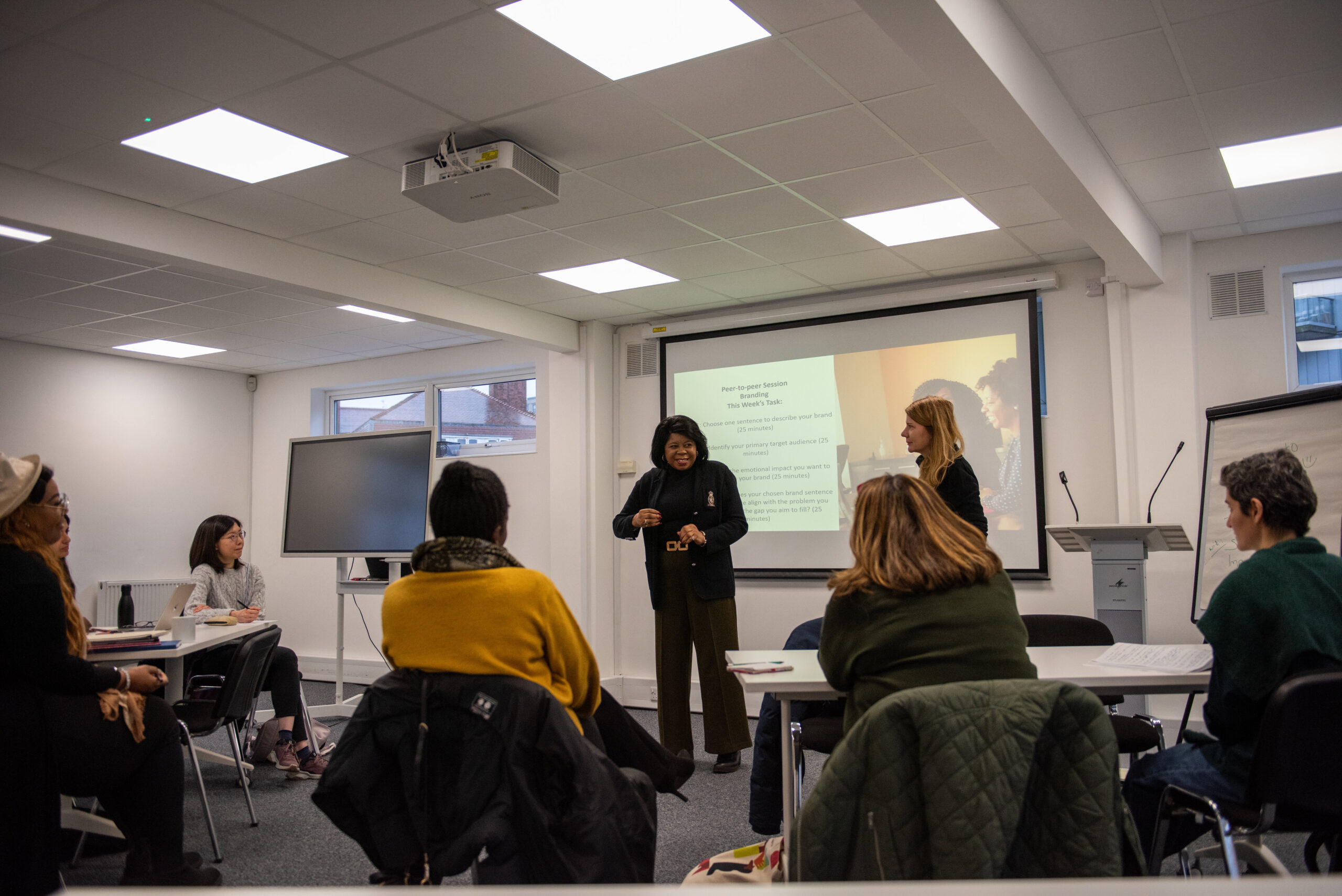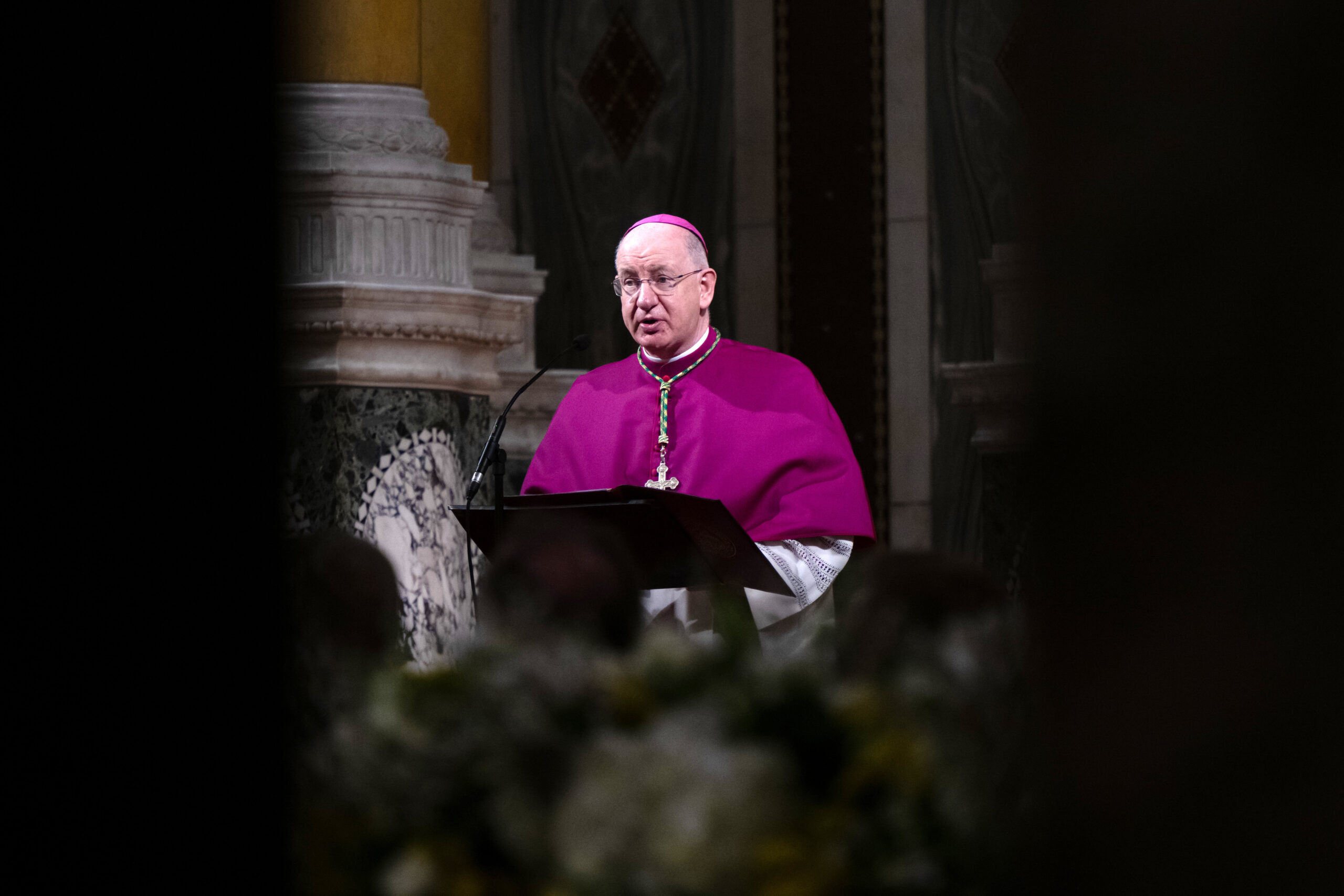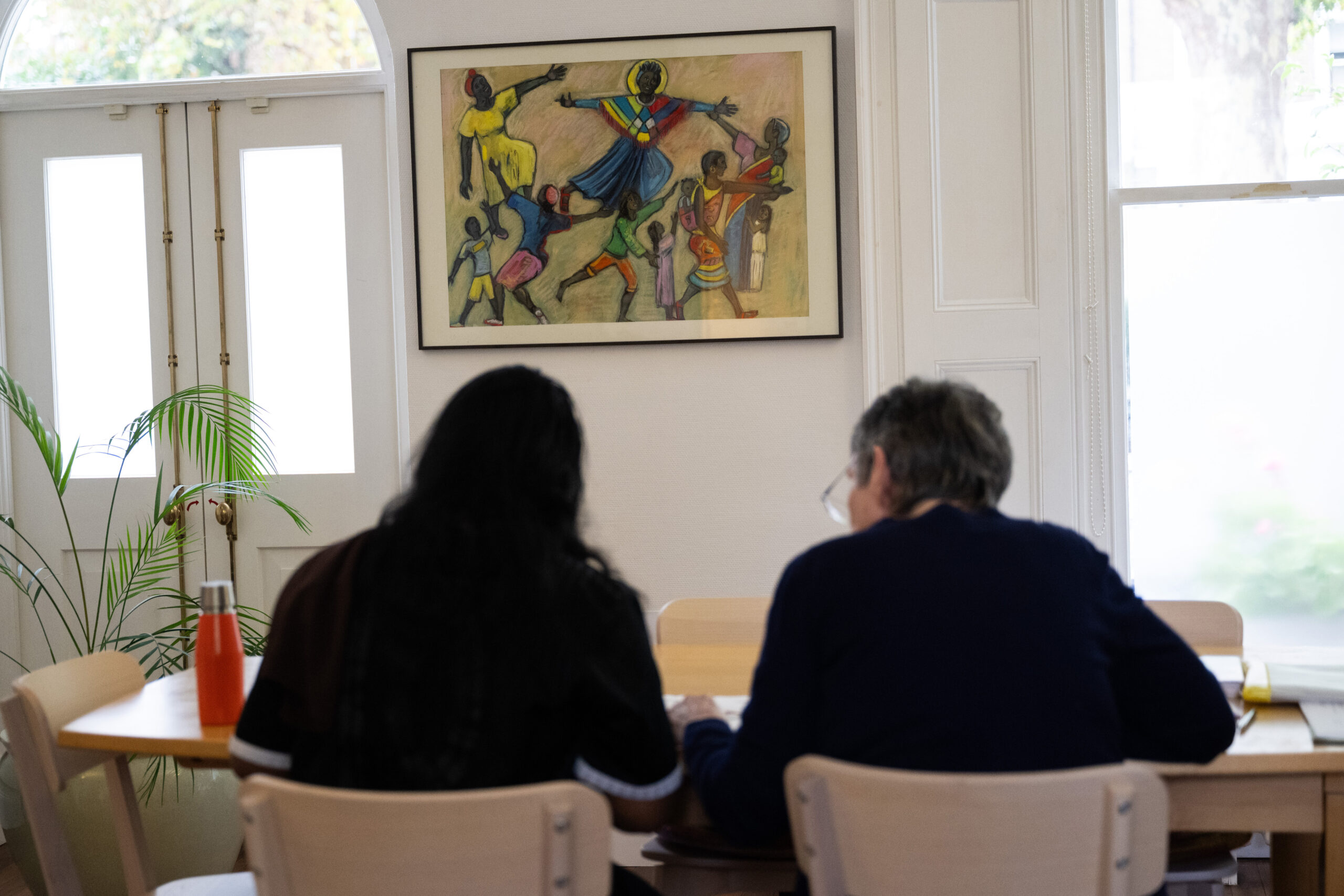To mark the 57th World Communications Day, which is celebrated by Catholics on 21 May 2023, Louise Cook, our Communications officer, gives some insight into how we choose the right words to communicate our message of love in action.
As Communications Officer for Caritas Westminster, words are my currency.
With support from my colleagues across the organisation, I try to choose the best words to express the social injustices that people face every day and to celebrate the work of volunteers and staff in our services and out in our communities.
- Firstly, the articles on our website and newsletters have to be readable, and not assume specialist knowledge. I love to cut out jargon, to use one and two syllable words instead of four or five syllables if I can, and keep sentences short and lively.
- Secondly, words must be chosen with care, especially when describing the people we are privileged to walk alongside, who have experienced injustices, discrimination or trauma. Always they are people first, and their situation in life is significant but not defining. So, you will find us talking about “people experiencing homelessness” and “guests at Bakhita House” instead of “the homeless” or “victims of slavery”.
- Finally, all our communications must be placed on our bedrock of Catholic Social Teaching, and framed with hope and love. When we start with a vision of the Kingdom of God on earth, and are aware that injustices are man-made and can be changed, and we see every person as a potential change-maker, then we can inspire action.
Sometimes, there are surprises. My colleagues – those who are closer to the people we serve and the issues they face – offer corrections and alternative words and phrases. What doesn’t work in one area, can often work in another, and we have some interesting discussions.
Take for example the word “facilitate”. Usually I would use a shorter alternative, say “support” or (depending on context) “organise”, which are more lively and active words. Facilitate is not a word often used in every day speech, so I would normally avoid it.
However, one of my colleagues in Caritas Deaf Service, who spends a lot of time interpreting for British Sign Language (BSL) users, likes the word “facilitate”. She told me: “It’s more neutral and means we don’t come across as “helpers”, but as bi-lingual and bi-cultural conduits.” We do not enable or assist Deaf people – they are very capable people! – but we facilitate the communication between Deaf and hearing people – they are the active ones, and the Deaf Service interpreters sit neutrally in between.

A touch of etymology can often be enlightening for wordsmiths like me. Facilitate literally means “to make easy” (French/Italian “facile” = easy). There are many ways in which life is challenging for people, especially those who have a disability. Caritas Westminster aims to make it easier.
The language we use can help this Facilitation by being accessible and inclusive, breaking down barriers and always speaking the truth in love (Eph 4:15). And thinking carefully about language can bring unexpected insights into the nature of the work we do.
This Communications Day, we join in the prayer written by Pope Francis for this occasion.
May the Lord Jesus, the pure Word poured out from the heart of the Father, help us to make our communication clear, open and heartfelt.
May the Lord Jesus, the Word made flesh, help us listen to the beating of hearts, to rediscover ourselves as brothers and sisters, and to disarm the hostility that divides.
May the Lord Jesus, the Word of truth and love, help us speak the truth in charity, so that we may feel like protectors of one another.
See also the Pope’s message for World Communication Sunday
Read our blog for Deaf Awareness Week: Deaf and Hearing Together, a Profound Experience.




